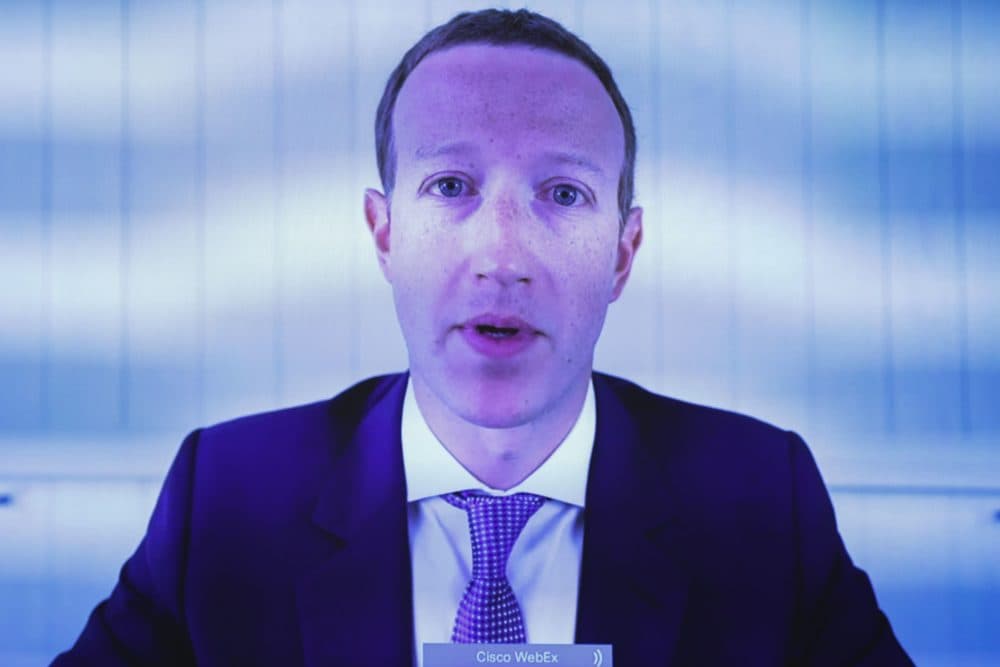Advertisement
Commentary
How Can America Reckon With Racism, If There Are No Facts?

The data tells us that the most interacted-with posts on Facebook are, consistently, the posts that promote conservative perspectives, writes Kevin Roose of the New York Times. The right-wing ecosystem, he argues, is “stunningly effective in shaping its own version of reality.”
Roose's data-driven conclusions are likely unsurprising to those who follow politics and social media trends, despite Donald Trump’s inane bluster about how all of Silicon Valley systematically censors him and his supporters. The notion that conservatives, backed by the Republican Party, are setting out to distort and reshape reality is disturbing and scandalous — but we treat it as a banal inevitability. We’ve been conditioned to accept this as something normal, as something to be worked around with quiet professionalism and meek resignation.
Consider the two incidents that have bookended the summer of 2020: The killing of George Floyd and the shooting of Jacob Blake, as well as the protests and activism that swiftly responded in person and on social media. Epistemology — the systematic study of knowledge, the science of how we know what we know, and the contours by which empirical belief differs from opinion — has been deeply complicated by these events, a trend that began with the killings of Trayvon Martin and Michael Brown. The discussion of these incidents, and the ability to effect meaningful change in their wake, has been neutered by an inability to reach consensus about even the plain facts of each case.
It wasn’t supposed to be this way. The conventional wisdom of the smartphone era is that all information is and should be instantaneously accessible. One of my favorite comedians, Pete Holmes, reflects on the strange sense of pleasure that emerges from being denied instantaneous knowledge. It used to be, Holmes reminds us, that if you didn’t know something, you “Just. Didn’t. KNOW! — and you felt that yearning and that deficit in your being!”
Compare that primitive state of being with the Google and iPhone era, Holmes says, in which our access to an infinitude of knowledge cheapens that knowledge, as it becomes effortless and infallible.
Well … effortless, yes. But hardly infallible. The devastating irony of the present moment is that for all of our near-limitless access to knowledge, the truth -- that putative result of knowledge -- is not merely inaccessible, but perpetually transformed into an up-for-grabs commodity. This bleak truism has flourished uniquely in American society both in spite of and because of our perpetually unfettered engagement with information. Or, to be more precise about it, and to use a more contemporary term, our engagement with content.
The noisy public debate about the exact unfolding of Blake’s shooting and Kyle Rittenhouse’s killing of protesters has little to do with abstract values and ideas about police departments’ standard methods, or the disproportionate use of force on minorities, or the moral ramifications of vigilantism.
It’s unlikely that such discussions would be productive anyhow, given our highly-polarized politics, but it’s still worth noting that the debate hasn’t even been able to get that far. We are too busy futilely trying to build consensus concerning the bare truth of what happened. It’s a conversation ceaselessly muddied by conservative meme culture, where Black Lives Matter and Antifa are terrorist organizations, a teenager who brings an assault rifle to a protest is engaged in a patriotic defense of western civilization, Joe Biden is socialist, and there is no meaningful distinction between activism and mayhem .
... the discussion can’t go anywhere productive because it must spend all of its time trying to establish facts that are only in doubt to bad-faith debaters and internet trolls.
This is a flagrantly deliberate strategy of conservative social media: To sow so much doubt about what has actually happened, treating recorded and objective facts as dubious and subjective, that the discussion can’t go anywhere productive because it must spend all of its time trying to establish facts that are only in doubt to bad-faith debaters and internet trolls.
Furthermore, this is a thoroughly modern phenomenon. With only a few exceptions — the Kennedy assassination comes to mind — cultural and political flashpoints in the past sparked disagreements concerning the moral and pragmatic implications of certain incidents, not the essential facts of what actually transpired.
The first chapter of Tom Perrotta’s brilliant 2017 novel “Mrs. Fletcher,” a book that engages with a wide variety of culture war-adjacent topics, succinctly captures the fraught relationship between epistemology and socio-political discourse. The protagonist, Eve, overhears her college-aged son Brendan verbally demeaning his girlfriend, and wants desperately to confront him. However, she acknowledges to herself that Brendan, who “could be a pretty slippery customer when he needed to be,” would just tell her she’d misheard him and that “they’d end up disputing the basic facts of the case rather than discussing the issues that really mattered.”
There is no more perfect embodiment than this sentence of what the alternate reality of conservative social media is doing to our urgently-needed reckoning with racism and violence.
All opinions are solely those of the author. Follow Cognoscenti on Facebook and Twitter.
